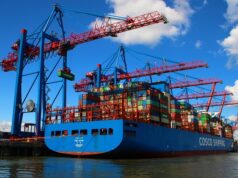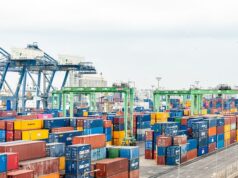
The Philippine Bureau of Customs (BOC) has issued guidelines on implementation of the Registered Exporters (REX) System, which certifies origin of goods and which the European Union (EU) is progressively introducing in its preferential trade arrangements.
Customs Memorandum Order (CMO) 50-2019, signed by Customs commissioner Rey Leonardo Guerrero on November 26, covers guidelines on the implementation of REX, whose rules of origin (ROO) are laid down in the EU Delegated Regulation No. 2015/2446 and EU Commission Implementing Regulation 2015/2447 of the Union Customs Code (UCC) (EU Regulation No. 952/2013).
BOC is the Philippines’ competent authority in implementing the new EU system. The REX allows registered exporters to self-certify the preferential origin of goods by accomplishing a Statement on Origin under the Generalised System of Preferences (GSP) on the invoice or other commercial document identifying the exported products.
The registered exporter does not need to apply for the issuance of certificate of origin (CO) with every export.
First applied to GSP program on January 1, 2017, REX will eventually completely replace the current system of origin certification that is based on the COs issued by government authorities and on invoice declarations made out under certain conditions by economic operators.
The global transition period from the current system to the REX system is from January 1, 2017 to June 30, 2020 at the latest. The Philippines had earlier notified the EU that it would apply the REX system on January 1, 2019, but later asked for an extension until June 30, 2020, a request granted by the EU. This means Philippine exporters can still apply to register in the system until June 30, 2020.
According to CMO 50-2019, the Statement on Origin on any commercial documents will serve as proof of origin in accordance with EU Delegated Regulation No. 2015/2446 and EU Commission Implementing Regulation 2015/2447 of the UCC.
The Statement on Origin may be made out during exportation to the EU or when the exportation to the EU is ensured.
A registered exporter is a producer, manufacturer, or trader who has complied with the requirements set forth in the EU Delegated Regulation No. 2015/2446 and EU Commission Implementing Regulation 2015/2447 of the UCC, and who has been authorized by BOC to complete a Statement on Origin through invoice or any other commercial document.
Producers, manufacturers, or traders may apply to be a registered exporter by filling out the application form available at (https://customs.ec.europa.eu/rex-pa-ui/#/create-preapplication/).
Those applying as registered exporters who are neither manufacturers nor producers (for instance, traders) must know how the goods were manufactured or produced. For instance, they should possess all necessary documents such as supplier’s declaration to allow them to declare and prove the origin of the goods.
A registered exporter will be given a registered exporter number by BOC’s Export Coordination Division (ECD).
The registered exporter number must be indicated in the Statement on Origin if the value of the originating goods for consignment is above the value threshold of EUR6,000. For originating goods below the threshold, any exporter, even though not registered with BOC, may accomplish the Statement on Origin.
Representative/s of an exporter will be allowed to make origin declaration upon submission of the exporter’s written authorization.
BOC will verify the originating status of the goods upon the request of the importing country or based on risk analysis criteria. Verifications can be made based on documents requested from the exporter or on inspections conducted at the exporter’s premises.
Upon request for verification of the Statement on Origin carried out at random or on reasonable doubts as to the authenticity and accuracy of such document by the customs authority of the importing EU member states, the ECD and/or Export Division/Unit will audit and evaluate the accounting and manufacturing process of the products at the exporters’ premises within six months of the date of the verification request.
Responses to all requests for verifications will be centralized in ECD, and all chiefs of the Export Division/Units are thus required to direct the results of their verification to ECD.
BOC will revoke a registration if the registered exporter no longer exists; no longer meets the conditions for exporting goods under the GSP scheme; has informed BOC that he no longer intends to export goods under the GSP scheme; fails to keep the data concerning his registration up to date; or intentionally or negligently draws up, or causes to be drawn up, a Statement on Origin which contains incorrect information and leads to his buyer wrongfully obtaining the benefit of preferential tariff treatment.
In December 2014, the Philippines was granted beneficiary-country status under the EU GSP+, which allows the country to export 6,274 eligible products duty-free to the EU market. Before this, the Philippines was covered by the regular EU GSP which provided zero duty to only 2,442 products and reduced tariffs to 3,767 products.
According to the EU Trade Preferences Monitoring Report released on January 19, 2018, the robust trade between the Philippines and EU was highlighted by the EUR2 billion worth of Philippine exports to the bloc in 2017, compared to EUR1.66 billion in 2016, as Philippine products benefitted from the GSP+. – Roumina Pablo








